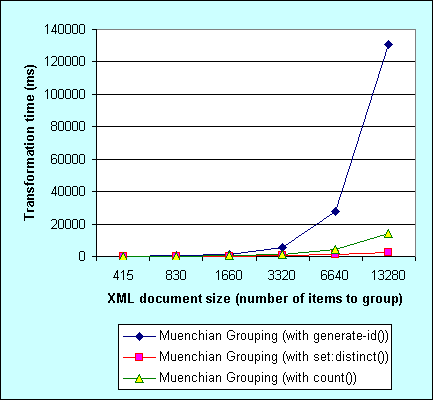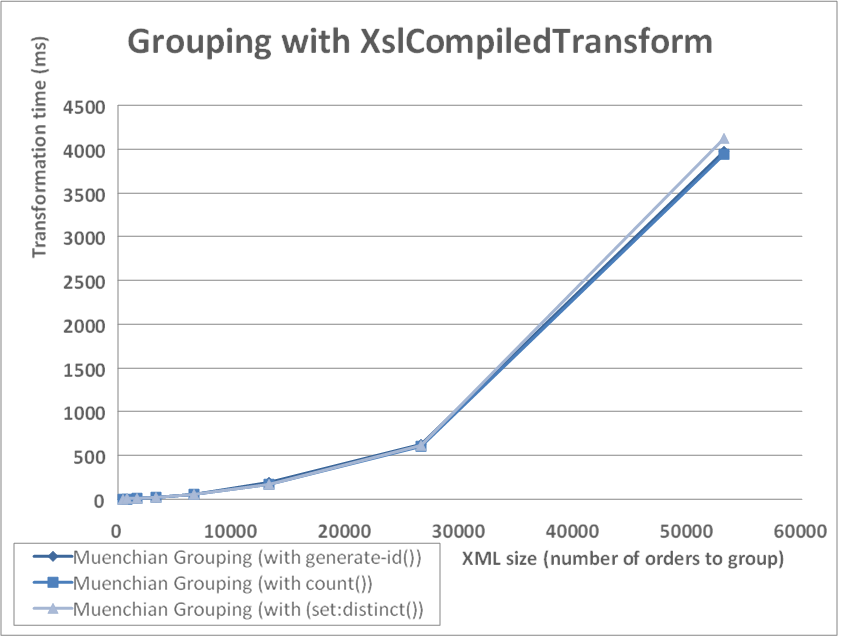Back in 2005 I was writing about speeding up Muenchian grouping in .NET 1.X. I was comparing three variants of the Muenchian grouping (using generate-id(), count() and set:distinct()). The conclusion was that XslTransform class in .NET 1.X really sucks when grouping using generate-id(), performs better with count() and the best with EXSLT set:distinct().
Here is that old graph:

Today a reader reminded me I forgot to post similar results for .NET 2.0 and its new shiny XslCompiledTransform engine. So here it is. I was running simple XSLT stylesheet doing Muenchian grouping. Input documents contain 415, 830, 1660, 3320, 6640, 13280, 26560 and 53120 orders to be grouped.

Besides being pretty damn faster that XslTransform, XslCompiledTransform shows expected results - there is no difference in a way you are doing Muenchian grouping in .NET 2.0 - all three variants I was testing are performing excellent with very very close results. Old XslTransform was full of bad surprises. Just switching to count() instead of generate-id() provided 7x performance boost in grouping. That was bad. Anybody digging into XslTransform sources knows how ridiculously badly generate-id() was implemented. Now XslCompiledTransform shows no surprises - works as expected. No tricks needed. That's a sign of a good quality software.

But i have a problem using keys in .Net 2.0,
Earlier it was running perfectly fine in nXslt1.1 and now its not.
Keys were taking a nodeset in the 'match' but now the latest version 2.0, it doesn't take a node set, instead it takes only a attribute.
What you have to say ??